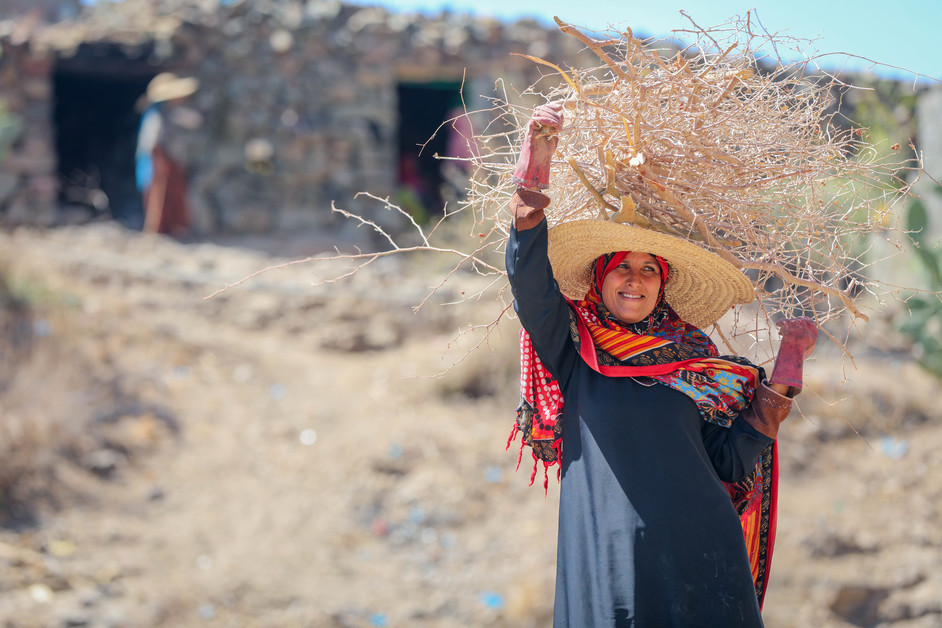“Raising a child is a huge responsibility. Imagine raising four children in the middle of a war.”
Kawather lives in Al-Maafar in Taizz with her husband and four children. “Before the war our life was relatively easy. We were able to feed our children. Now everything has changed. My husband lost his job and the prices of everything went up. He went to the city to look for work but he didn’t find anything.”
Kawather I started working in the farms to generate some income to feed her children, but it’s not reliable. “One day I am able to buy some food,” she says. “But the next day they sleep with empty stomachs. Sometimes I can’t help but cry. I am very thankful that at least we have one cow. I keep telling myself that our life is much better than many people who have absolutely nothing.”
As Yemen moves into the fifth year of conflict, the humanitarian situation is worse than ever. Over 24 million people are in need of humanitarian assistance, with ten million at risk of famine. Households are incapable of affording the basics for their families and find themselves trapped with malnutrition, a lack of food and clean water and unemployment.
Kawather’s house consists of just one room. They don’t have a bathroom, so she has to wait until it’s dark to go outside if she needs to use the bathroom. This is one of the huge indignities that women in her village suffer from.
Water and sanitation is one of the most critical needs in Yemen. The lack of a fully functioning health system and limited access to safe water and hygiene caused the worst outbreak of cholera in history – since 2016 there have been a total of 1.3 million suspected cases and almost 3000 deaths; 92 percent of Yemen’s districts are affected by cholera. With the rainy season coming and a surge in cholera cases, there are concerns of a renewed outbreak.
CARE is working to improve access to clean water and latrines for households, schools and public facilities, as well as conducting hygiene awareness sessions. Kawather participated in building a latrine and at last she can go to the toilet without waiting for night to fall. But she still needs to feed her children and educate them. “Sometimes we have only of a piece of bread and milk to eat. I wish I had a reliable job to be able to afford a decent life for me and my children.”


